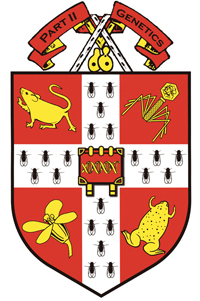
Why study Genetics?
Sydney Brenner, writing in the 100th issue of Trends in Genetics in 1993, made the prediction that genetics as a separate subject would have disappeared by the year 2000, because all biology would be gene-centred and all biologists would be geneticists. The prediction may have been realised because of the advances in sequencing genomes and microarray technology, which are now used by most biologists, but it is still true that genetics offers a viewpoint and a range of experimental approaches that find application in many areas of biological enquiry.
Genetics has always been concerned with the problem of how the hereditary information in DNA controls what an organism looks like and how it works. Classically this involved the use of genetic variants (mutants) to upset the biological function of the cells or organisms and, from the effect of these mutations, to make deductions about the way cells and organisms worked. At the molecular end of the subject, the availability of sequence information and genomic analysis, together with sophisticated techniques for gene replacement, and analysis of gene expression patterns (microarray technology), gives us much more powerful tools for looking at the way genes work to make us what we are. At the other extreme of the subject, a knowledge of genetics is fundamental to an understanding of how organisms, populations and species evolve. One of the most exciting developments in the subject in the last few years is the way in which these two extremes have begun to approach each other, through the application of the new molecular systematics to the problems of development, evolution, and speciation.
Geneticists believe that the methods and techniques of genetics are applicable throughout the spectrum of biological activity, and are as relevant to molecular biology as to population studies. Some of the basic tools of modern biology (analysis of genomic sequences and bioinformatics) are most intelligently used in the knowledge of the genetic principles that underpin the design and application of the software. At the other end of the spectrum, a knowledge of genetics is fundamental to an understanding of the evolution of populations and species.
Image at top adapted from Centenary logo © Joaquin de Navascues

